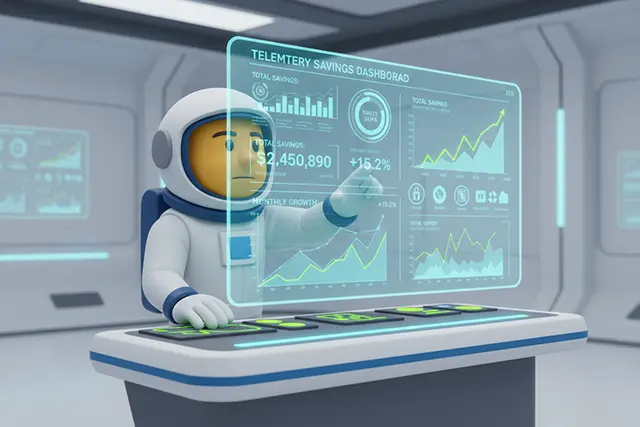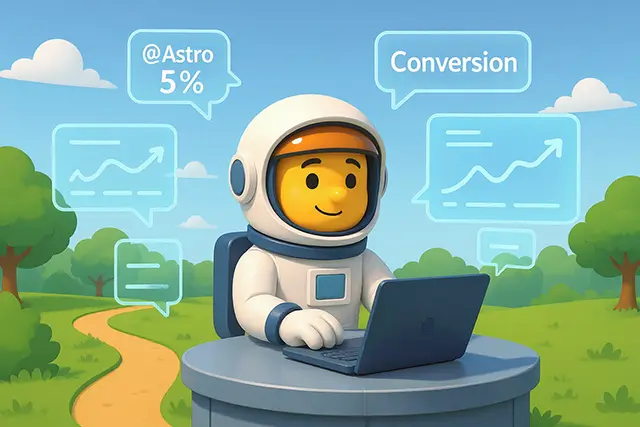Why Smart Professionals See AI Data Privacy Protection as Their Next Big Opportunity

While your colleagues frantically scrub their digital footprints after reading another headline about AI training data scandals, you’re quietly building a six-figure consulting practice helping others do the same. Sound far-fetched? It’s not…
The recent revelation that major AI training datasets contain millions of personal documents from passports to credit cards has most professionals running scared. But here’s what they’re missing. every AI data privacy protection crisis creates a massive market opportunity. And right now, we’re sitting on a $300 billion gold mine.
Think about it. When was the last time you paid extra for organic food? Chose Signal over WhatsApp? Selected the privacy-focused email provider? You’re not alone. McKinsey reports that 71% of consumers would pay a premium for brands that guarantee data protection. Yet most businesses are still treating digital identity security as a compliance headache rather than a competitive weapon.
This isn’t about becoming a doomsday prepper in the digital world. It’s about recognizing that AI data privacy protection is rapidly becoming the new luxury good and positioning yourself to profit from this shift.
Table of Contents
The Hidden Business Opportunity in AI Data Privacy Protection
Why Privacy-Conscious Professionals Win Big
Remember when Made in USA became a selling point? We’re witnessing the birth of Privacy Protected as the new premium label. And the numbers dont lie.
Apple’s privacy-focused marketing helped them capture 57% of the premium smartphone market. DuckDuckGo grew 62% year-over-year by simply not tracking users. Even small businesses are cashing in privacy-first email service ProtonMail went from startup to $350 million valuation in just seven years.
But here’s where it gets interesting for individual professionals. The demand for AI data privacy protection expertise has exploded 340% since 2020, according to LinkedIn’s Skills Gap Report. Privacy consultants are commanding $150-300 hourly rates. And the best part? You don’t need a computer science degree to get started..
Take Sarah Chen, a former marketing manager who pivoted to privacy consulting after her own data appeared in a breach. Today, she helps small businesses implement digital identity security protocols and earns more in a month than she used to make in a quarter. I realized that my experience as a victim was actually my biggest credential, she told me. Clients trust someone who’s been through it.
The $300 Billion Privacy Economy (Yes, Really)
Here’s what most people don’t understand: privacy isn’t just about protection it’s about profit. The global privacy tech market is projected to hit $300 billion by 2028, according to MarketsandMarkets research. That’s not just enterprise software; it’s a whole ecosystem of opportunities for AI data privacy protection services.
Consider these emerging niches:
- Personal data removal services (growing 45% annually)
- Privacy-first app development ($2.8 billion market)
- Digital identity management tools
- Privacy education and training
- Compliance consulting for small businesses
The beauty of this market? It’s still wide open. While everyones chasing AI and crypto, smart professionals are quietly building privacy-focused businesses with actual customers and immediate revenue.
Your 5-Step Framework for AI Data Privacy Protection Success
The Professional’s Privacy Inventory
Before you can help others protect their data, you need to understand your own exposure. Here’s the framework I’ve developed after auditing hundreds of professionals’ digital identity security situations:
Map Your Digital Real Estate Start with the obvious social media, professional networks, company websites. But don’t stop there… What about that decade-old blog? The local newspaper that quoted you? That fitness app sharing your running routes?
Create a spreadsheet with three columns: Platform, Data Type, and Risk Level. Be ruthless. That inspirational quote you posted in 2015 with your full name and employer? That’s a data point AI can scrape.
Assess Your Vulnerability Score Not all data exposure is equal. A LinkedIn profile serves a purpose; your credit card number on a random forum doesn’t. Rate each exposure on a scale of 1-10 based on:
- Sensitivity of information
- Ease of access
- Potential for misuse
- Professional necessity
Document the Money Trail Here’s what most privacy guides miss: follow the money. Which platforms have your payment information? Where have you made purchases? Every transaction creates a data trail, and AI training data risks multiply when financial information is involved.
The Clean Slate Protocol for Digital Identity Security
Now comes the fun part actually removing your data. But here’s the thing: you can’t just delete everything and disappear. You’re a professional, not a ghost.
Smart Deletion Strategy: Instead of nuking your entire online presence, think like a sculptor. Remove the excess while preserving the essential. Keep your professional profiles but strip out personal details. Maintain your thought leadership content but anonymize old posts this is real AI data privacy protection in action.
I’ve seen professionals spend weeks manually contacting websites. Save yourself the headache. Services like DeleteMe or Privacy Bee can handle bulk removals for $100-300 annually. Consider it insurance except this insurance actually prevents AI training data risks rather than just paying for them.
The 72-Hour Rule: Here’s a trick I learned from a Fortune 500 privacy officer: Implement a 72-hour delay on all personal posts. It’s enough time to reconsider whether that vacation photo or political opinion needs to live forever on the internet. You’d be surprised how much you’ll choose not to post..
Building Your AI Data Privacy Protection Firewall
Protection isn’t just about removal its about prevention. Think of this as building a moat around your digital castle.
Technical Solutions That Actually Work:
- Use masked email addresses for different services (SimpleLogin, AnonAddy)
- Deploy a VPN for all business activities (not just the sketchy stuff)
- Implement 2FA with hardware keys, not SMS
- Create data compartments separate emails for shopping, business, personal
But here’s the million-dollar insight: the best data scraping protection isn’t technical it’s behavioral. Every digital identity security expert I’ve interviewed shares one habit: they think before they click. That split-second pause before accepting cookies, downloading apps, or sharing information? That’s worth more than any software.
Three Ways to Monetize AI Data Privacy Protection
The Privacy Consultant Model
The fastest path to privacy profits? Consulting. And no, you don’t need certifications to start though they help.
The Low-Hanging Fruit Approach: Start with AI data privacy protection audits for small businesses. Most have no idea what data they’re collecting or how exposed they are. Charge $500-1,500 for a basic audit, deliver a report with actionable steps, then offer implementation services.
One consultant I know started by auditing local dental offices. They all had patient data scattered across personal devices, unencrypted email, and random cloud services, he explained. It was like shooting fish in a barrel ethically, of course.
Pricing Your Expertise:
- Basic digital identity security audit: $500-1,500
- Implementation support: $150-300/hour
- Ongoing monitoring: $500-2,000/month retainer
- Privacy training workshops: $2,000-5,000 per session
Privacy-First Product Development
Here’s where things get exciting. Every app that violates privacy creates an opportunity for a privacy-respecting alternative that addresses AI training data risks.
The Playbook:
- Find a popular app with privacy issues
- Build a simpler, privacy-focused version
- Charge 20-50% more
- Market to privacy-conscious consumers
Sound too simple? Tell that to the founder of Bear, a note-taking app that charges $30/year while competitors are free. Their selling point? No analytics, no tracking, no data mining pure AI data privacy protection. Revenue: $3 million annually.
The Trust Premium Strategy
This is my favorite model because it applies to any existing business. Simply add digital identity security as a premium feature.
Real-world example: A photographer started offering privacy sessions where photos were delivered on encrypted drives, never touched the cloud, and included deletion certificates. She charges 40% more than competitors and has a six-month waiting list…
The formula is simple:
- Take your existing service
- Add privacy guarantees
- Increase prices 20-50%
- Market to affluent, privacy-conscious clients who understand AI training data risks
Future-Proofing Your Career with AI Data Privacy Protection Skills
Skills That Matter When Privacy Becomes Currency
Forget learning to code unless you want to. The most valuable AI data privacy protection skills are surprisingly non-technical:
The Privacy Stack:
- Communication: Explaining AI training data risks without fear-mongering
- Strategy: Balancing visibility with protection
- Research: Finding and assessing data exposure
- Negotiation: Getting companies to delete data
- Education: Teaching digital identity security without preaching
Certifications worth considering:
- IAPP Privacy Professional (CIPP)
- ISC2 Privacy Engineering
- ISACA Privacy Certification
But honestly? Real-world experience trumps certificates. Start with your own privacy journey, document it, share it. That’s your first credential.
Building Your Privacy-First Network
The AI data privacy protection community is surprisingly small and incredibly welcoming. Here’s how to plug in:
Online Communities:
- r/privacy (Reddit) – Great for staying current
- Privacy Professionals LinkedIn Group – Where the money talks happen
- EFF’s supporter network – The advocacy angle
In-Person Opportunities:
- Local CyberSecurity meetups (they always need privacy speakers)
- Chamber of Commerce presentations (small businesses eat this up)
- Industry conferences (submit digital identity security talk proposals)
Pro tip: Position yourself as the privacy translator the person who makes complex AI training data risks accessible. That’s where the real opportunity lies.
Your Next Move: From Concerned to Confident
Here’s the bottom line: While others see AI’s data appetite as a threat, you now see it as an opportunity. The question isn’t whether to act it’s how quickly you can position yourself to benefit from the AI data privacy protection revolution.
Start with the 5-step audit this week. Not next month, not when you have time this week. Document your process. Share your findings anonymized, of course. Begin building your reputation as someone who doesn’t just understand digital identity security but someone who can profit from it.
The privacy economy isn’t coming it’s here. And the professionals who move first won’t just protect their data; they’ll build careers, businesses, and legacies on helping others navigate AI training data risks.
Ready to turn privacy from your weakness into your superpower? Download our free Privacy Audit Template and start your journey from data victim to AI data privacy protection pioneer today.
Because in the end, the best defense isn’t just protection it’s profit.







